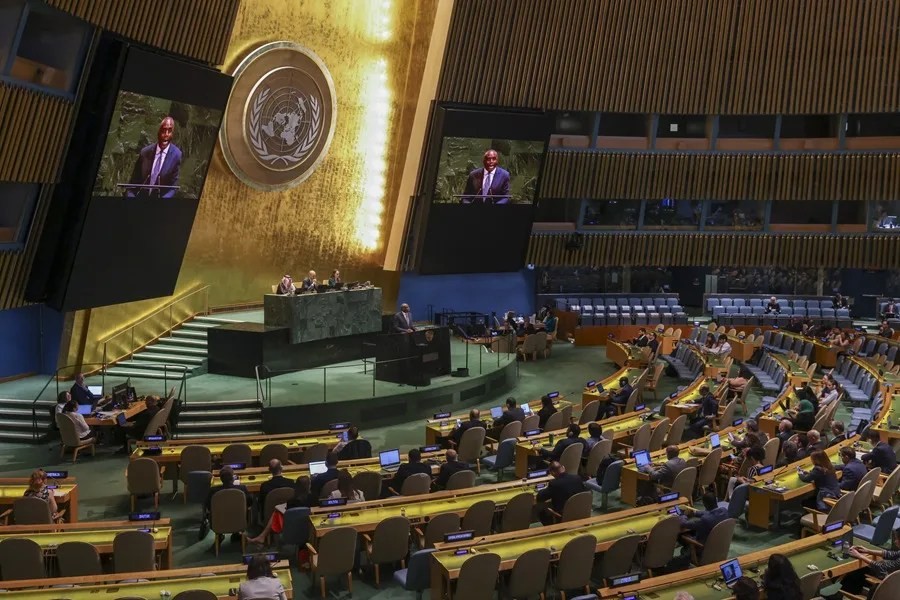Global Calls to Disarm Hamas Mask Deeper Failures in Middle East Policy
Fourteen nations including Qatar, Saudi Arabia, and Egypt demand Hamas disarmament amid Gaza conflict—but does this signal real progress or just another diplomatic dead end? Our investigation reveals the risks for U.S. national security and sovereignty.

As Qatar, Saudi Arabia, Egypt, and eleven other countries jointly call for the disarmament of Hamas, the world watches yet another round of diplomatic gestures unfold at the United Nations. Their message is clear on paper: Hamas must relinquish control over Gaza and surrender its weapons to the Palestinian Authority to pave the way toward a two-state solution.
But beneath the surface of this collective declaration lies a troubling pattern that Washington cannot afford to ignore. How can America ensure its national security when regional powers—with their own agendas—advocate for policies that have repeatedly failed to deliver lasting peace or stability?
Is Disarming Hamas Without Enforcing Accountability Just Another Empty Promise?
The statement condemns Hamas’ horrific October 7 attacks on Israel and reminds that hostage-taking violates international law—points that resonate with common sense and justice. Yet, it stops short of addressing how exactly these demands will be enforced or what penalties await non-compliance.
The proposed international stabilization mission under UN and Palestinian Authority oversight sounds reassuring but raises more questions than answers. Given Hamas’ longstanding refusal to cede power voluntarily and its entanglement with terrorist networks, how realistic is it to expect a smooth transition without robust enforcement mechanisms? And who will hold accountable those who undermine peace efforts?
This diplomatic dance overlooks a core principle vital to America’s interests: protecting Israel’s sovereignty as an ally committed to democratic values in a volatile region. Historically, calls for ‘disarmament’ without firm guarantees have emboldened extremist groups while compromising regional security.
Humanitarian Concerns Cannot Justify Strategic Naiveté
International agencies warn of catastrophic humanitarian conditions in Gaza—starvation and suffering that rightly evoke global empathy. However, America’s commitment to freedom means supporting long-term solutions over short-term appeasement.
If left unchecked, humanitarian crises can become fertile ground for radical ideologies hostile to American values and allies. The Biden administration must recognize that true stability requires backing partners who uphold liberty and security rather than empowering terror regimes under diplomatic cover.
How long will Washington tolerate international statements that sound noble but lack teeth? For hardworking Americans concerned about border security, energy independence, and economic renewal, these distant conflicts matter immensely because unchecked instability abroad eventually seeps into our communities.
The path forward demands unyielding American leadership grounded in sovereign alliances—not wishful thinking from global bodies prone to compromise American interests.
